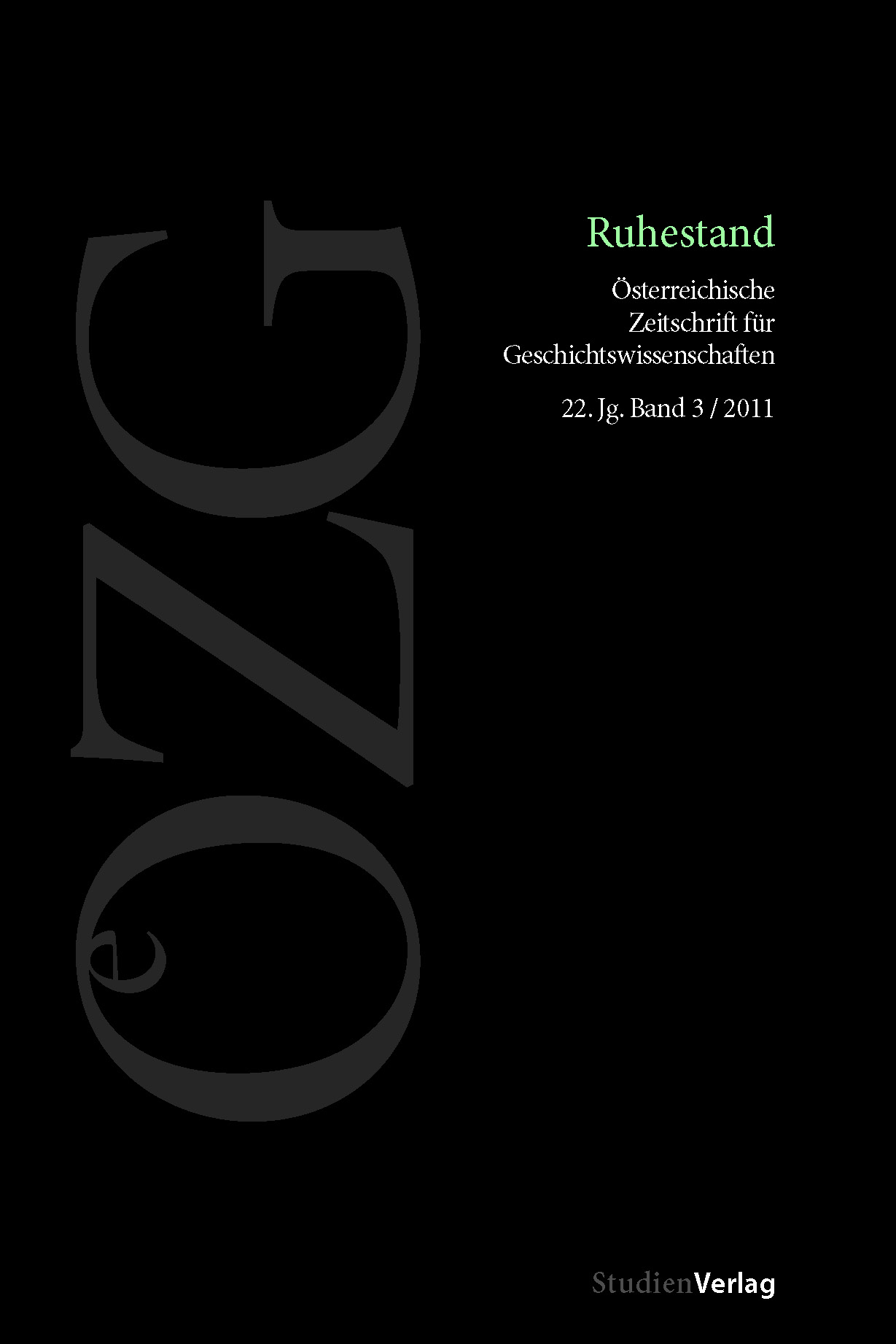‘Old timers who still keep going’: retirement in Ghana?
DOI:
https://doi.org/10.25365/oezg-2011-22-3-7Schlagworte:
Ghana, retirement, European business, senior masculinityAbstract
This article looks at the retirement experience of Ghanaian employees of the United Africa Company (UAC), from the 1940s until the present day. Retirement was a new concept in Ghana, and UAC employees were among the first who were expected to retire by a specific age, and for whom pension provision was made. Their experience took place against the background of an incomplete introduction of legislation aimed at providing financial security in old age. The article explores this background, the views of UAC management on the retirement of African staff, and UAC’s strategies to ensure that employees were prepared for retirement. It also examines the views of the people about to be retired and the rituals that marked retirement. This is followed by an exploration of the post-retirement activities of UAC pensioners. Throughout the period under examination, former UAC employees did not regard retirement as the transition to a period of ‘well earned rest’, but rather as a transition to new economic activities, alongside a continuation of social activities and perhaps the gaining of the status of an elder or a Chief in the community. The failure to implement a comprehensive pension scheme in Ghana largely reflects the impact of economic and political crises, and also the difficulty of including a large informal sector in such a scheme. However, this article also highlights the existence of cultural factors that made the concept of leisurely retirement unattractive in the Ghanaian context.


